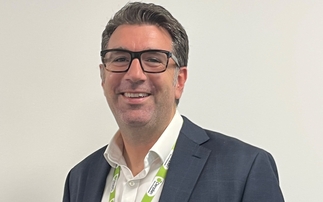Health cash plans are testament to the saying 'a little goes a long way'. David Wilson explains how these products can keep businesses healthy and advisers happy with just a little effort
As the credit crunch begins to bite, decision makers in British businesses are facing some tough choices.
The outlook is bleak as economic growth is predicted to decline throughout the rest of 2008. Consumer confidence has been dropping for the last six months, food and energy costs are on the rise and the vast majority of businesses are seeing sales and profits take a nosedive.
So what does this mean for intermediaries selling healthplans as an employee benefit? In the current economic climate, some businesses may question the place of these products, viewing them as an unnecessary frill that can be cut easily to alleviate financial pressures.
It is quite easy to disagree with this view; intermediaries can advise clients to think about the longer-term perspective and how health cash plans can help their employees through difficult times. Plus, removing employee benefits only serves to further reinforce any negative perceptions in those employees who may already be worrying about the effects of the widely reported economic decline.
Reducing investment in benefits is short-sighted and does not take into account the fact that every employer is legally obliged to provide a safe and satisfactory working environment. A downturn in the economy does not mean that they can turn a blind eye to these responsibilities.
Many employers have taken steps to prove that they have health and stress management policies in place and the health cash plan market has adapted to address these needs.
Duty of care
Furthermore, Health and Safety Executive guidelines have made healthcare a priority for employers. These 'duty of care' responsibilities have forced employers to look in detail at their healthcare strategies and ensure that appropriate measures are in place to look after employee health and wellbeing.
These range from making provision for employees who may suffer from ill health as a result of stress-related conditions from longer and harder working hours, to providing eye tests and glasses for those who spend extended days spent hunched over computers.
Putting in place a health cash plan can help employers to meet and budget for the costs involved in health and safety, and removes the need for employers to reimburse employees for costs after treatment.
Health cash plans appeal to consumers looking to protect themselves from costly non-NHS treatment and businesses searching for affordable healthcare products that can be offered on a wide scale. Although useful for providing access to private healthcare, private medical insurance (PMI) products are generally used to cover just senior employees for serious medical requirements due to their costly nature.
A health cash plan can help individuals budget towards a range of everyday essential healthcare treatments including dental check-ups, eye-tests, physiotherapy and access to specialist consultations and a variety of complementary therapies.
In addition, due to the everyday essential nature of health cash plans, there is little conflict with PMI products, meaning that these products can work hand-in-hand to complement each other.
Broad appeal
It is important that intermediaries are able to offer comprehensive products that can be provided cost effectively to all members of the team. It is this low cost and ease in which they can be offered to each and every employee throughout an organisation - regardless of age or status - which makes them so appealing.
In the current climate it is important that intermediaries have the option of exploiting a number of benefits to fit a company's needs. Employees are the lifeblood of any business. Happy, healthy employees whose welfare is being cared for are more productive and are therefore more profitable. Maintaining employee wellbeing can really make the difference between organisational success and failure at this critical time.
Worries of an economic downturn may put further strain on employees which may result in a growing number of cases of work-related emotional and physical illness and leading to increased absence from work - which may have serious implications on a business struggling to meet its targets and compete in a pressured economic environment.
It is important to remember that it is not just businesses that are cutting back on overheads - employees are too. Higher household costs may lead to employees putting off necessary treatments until they have spare funds.
Potentially, this can lead to trivial healthcare niggles becoming larger problems that require more extensive and time-consuming treatments, which can result in more time away from the workplace when most businesses cannot afford it.
Employee retention
A health cash plan can also help to retain the best employees. They are a great way to reward, recognise and prove that you care for employees during times like these - showing that you care can be the difference in retaining good staff during periods of uncertainty.
For a company, losing valued employees is a real risk in these unsettled times. Replacing them can be a costly and time consuming process.
Advertising or headhunting fees are just part of the cost as employers must also consider the costs of retraining and the stress-inducing impact of understaffing on other members of the team as they struggle to cope with increased workloads.
Health cash plans have a high-perceived value with employees - in some cases greater than a nominal pay rise as they can be used regularly and extended to include family members. Offering very real benefits, they are more relevant than ever before as many employees have no option but to go private for treatments that were once more widely covered by the NHS - dentistry being one example of this.
It is also important to remember that healthplan premiums are largely static, allowing employers to budget and plan for their continued use. Unlike larger employee benefits expenditure such as company cars, gym membership and share schemes, healthplans contribute to the overall health and success of a business for a small, easily budgeted for premium.
With the demand from the corporate market at an all time high, health cash plans can complete an intermediaries' health and protection package offering.
Commission
There is a common misconception that health cash plans offer little commission, but when their affordability leads to take up by the whole workforce where a PMI policy would not be practical, the commission can be substantial and more importantly, ongoing. Once the sale is made, intermediaries can normally be assured of long-term income with little administration and a long life expectancy for the product.
The credit crunch will only serve to make this kind of product more widely requested as employers and employees search for a cost effective solution to keeping a business healthy and in the best shape for continued productivity and profitability. Healthplans, therefore, remain a relevant and buoyant product for intermediaries.
The future will inevitably bring change, but health cash plans are in a relevant and strong position and will evolve to meet the changing needs of the future.
- David Wilson is intermediary manager at Healthsure.











